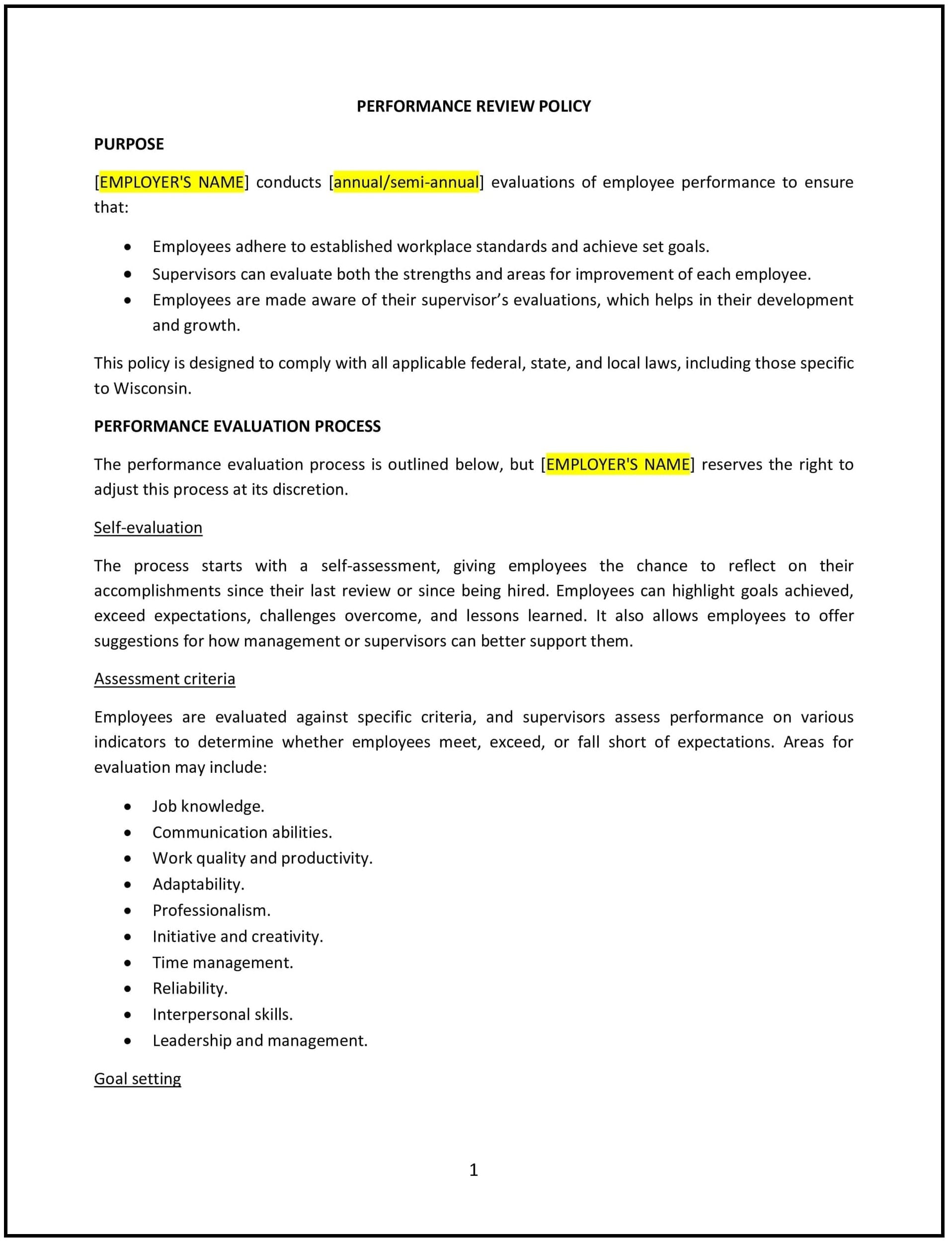Performance review policy (Wisconsin): Free template
Got contracts to review? While you're here for policies, let Cobrief make contract review effortless—start your free review now.

Customize this template for free
Performance review policy (Wisconsin)
A performance review policy helps Wisconsin businesses establish a consistent and transparent process for evaluating employee performance. This policy outlines the frequency, criteria, and procedure for conducting performance reviews, ensuring that employees receive feedback on their work and are supported in their professional development.
By implementing this policy, businesses can foster a culture of continuous improvement, enhance employee engagement, and align individual performance with company goals.
How to use this performance review policy (Wisconsin)
- Define the review process: Specify the frequency of performance reviews, such as annually, semi-annually, or quarterly, and outline the process for preparing and conducting reviews.
- Set performance criteria: Outline the key performance indicators (KPIs) or competencies that will be evaluated, such as job-specific skills, communication, teamwork, and productivity.
- Provide feedback guidelines: Establish clear guidelines for giving constructive feedback, focusing on strengths and areas for improvement while promoting employee growth.
- Document reviews: Require written documentation of performance reviews, including employee feedback, goals for development, and agreed-upon actions for improvement.
- Set performance goals: Encourage employees and managers to set measurable goals during the review, ensuring alignment with team and company objectives.
- Ensure consistency: Apply the same review process and criteria across all employees to ensure fairness and avoid bias in evaluations.
- Monitor progress: Establish follow-up procedures to track progress on performance goals and ensure that employees receive the necessary support for improvement.
Benefits of using this performance review policy (Wisconsin)
This policy offers several benefits for Wisconsin businesses:
- Promotes employee development: Provides employees with clear, actionable feedback to help them improve and reach their full potential.
- Enhances performance alignment: Aligns individual performance with company objectives, ensuring that employees contribute to organizational success.
- Improves communication: Encourages open dialogue between employees and managers, promoting transparency and trust.
- Boosts employee morale: Provides employees with recognition for their achievements and supports their growth, leading to higher satisfaction and retention.
- Reduces legal risks: Ensures consistency and fairness in performance evaluations, which helps mitigate the risk of discrimination or bias claims.
Tips for using this performance review policy (Wisconsin)
- Communicate the policy clearly: Ensure that all employees understand the performance review process, including criteria, expectations, and timelines.
- Provide regular feedback: Offer ongoing feedback throughout the year to prevent surprises during performance reviews and encourage continuous improvement.
- Encourage goal-setting: Work with employees to set realistic, measurable goals that align with their development and the company’s needs.
- Document reviews: Maintain clear records of all performance reviews and follow-up actions to track progress and ensure compliance.
- Review the process periodically: Regularly assess the effectiveness of the performance review process and make adjustments as needed to ensure it meets business and employee needs.